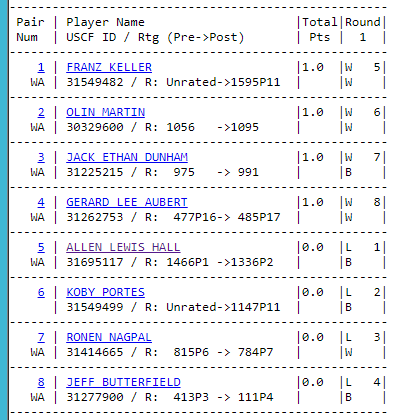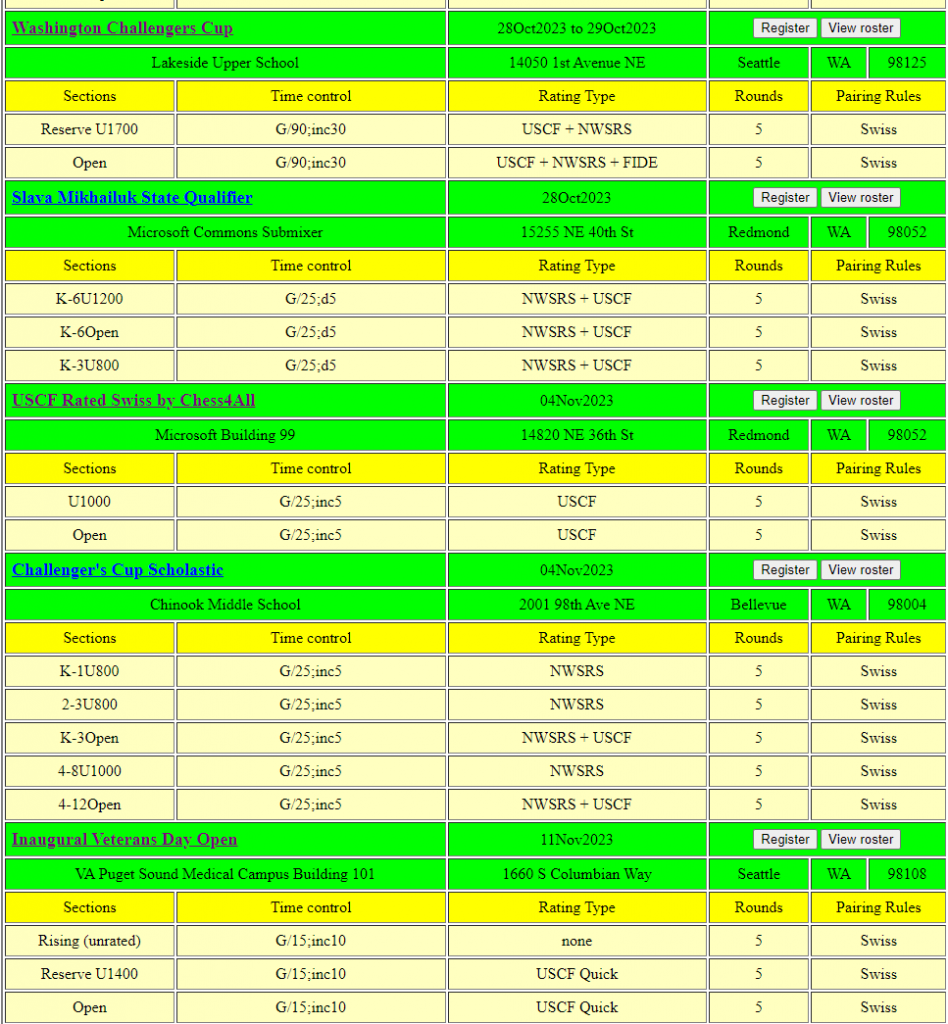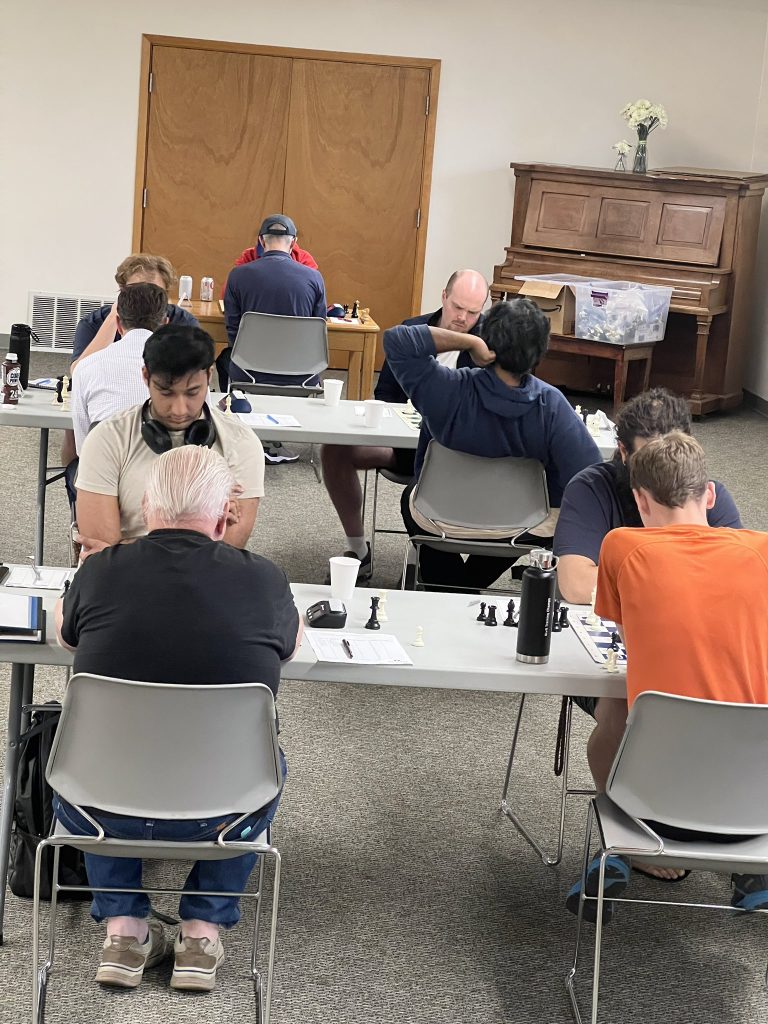Eight players for Classical Night last week – here is the crosstable! Come on out on Thursdays for free chess in Des Moines as always. Check the Events Page for more information and the schedule.
USCF Crosstable Link: https://www.uschess.org/msa/XtblMain.php?202403077922-30470369


